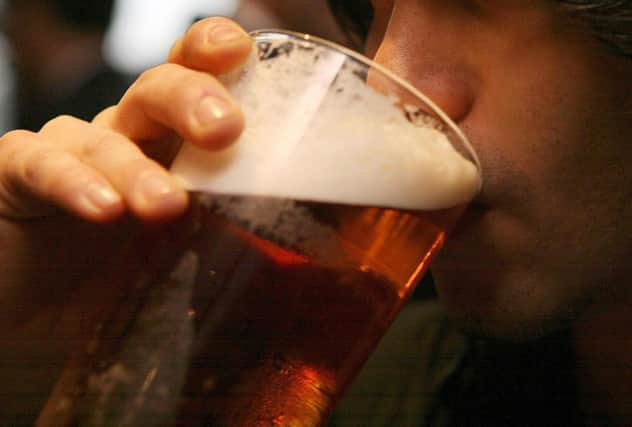Alcohol deaths in Scotland at highest level in 14 years, figures show


The number of deaths from alcohol-specific causes rose in Scotland in 2022 by 2 per cent, according to figures published today by National Records of Scotland (NRS).
In total, 1,276 deaths were attributed to alcohol-specific causes last year, 31 more than in 2021, and the highest number since 2008.
Advertisement
Hide AdAdvertisement
Hide AdAccording to the NRS: “Male deaths continue to account for around two thirds of alcohol-specific deaths. Female deaths increased by 31 to 440, with the number of alcohol-specific male deaths unchanged at 836.
“Taking into account the changing size and age-structure of the population, the rate of death had changed from 22.3 per 100,000 to 22.9 per 100,000 over the last year. This is not considered statistically significant.”
Daniel Burns, head of vital events statistics at the NRS, said: “Looking at the long term trend the number of deaths from alcohol-specific causes fell between 2006 and 2012 but has risen since and is now about the same as 2010 levels.
“In 2022, the average age at death for females from an alcohol-specific cause was 58.7 years and for males it was 60.0 years.”
There are 4.3 times as many deaths from these causes in the most deprived communities as in the least deprived communities but this equality gap has been narrowing. This compares to a ratio of 1.8 times for all causes of death.
Drugs and alcohol policy minister Elena Whitham said: “Every life lost is a tragedy and my sympathy goes to all those affected by the loss of a loved one through alcohol.
“While we will need to better understand the reasons for this increase in deaths, I will do all I can to reduce alcohol-related harm. We will continue to work closely with Alcohol and Drug Partnerships (ADPs) and the third sector to address this public health priority, backed by substantial investment. This year £113m will be made available to ADPs to support local and national initiatives ensuring that local services can respond to local needs.
“We will address the unique challenges women face when accessing treatment, support and recovery, including stigma, while recognising that men still remain at the highest risk of death.
Advertisement
Hide AdAdvertisement
Hide Ad“We are also working to ensure that people continue to receive the same quality of care as those with problematic drug use. We are supporting a review and update to clinical guidelines for alcohol treatment which will introduce new approaches in a broad range of settings including hospitals. This will help ensure anyone with problematic alcohol use receives the right treatment at the right time.
“This is in addition to wider activity – including our world-leading Minimum Unit Pricing (MUP) policy. Recent research estimated it has saved hundreds of lives, likely averted hundreds of alcohol-attributable hospital admissions each year - and also contributed to reducing health inequalities. The research found the largest reductions in deaths and hospital admissions wholly attributable to alcohol consumption were seen in men and those living in the 40 per cent most deprived areas.”
Comments
Want to join the conversation? Please or to comment on this article.